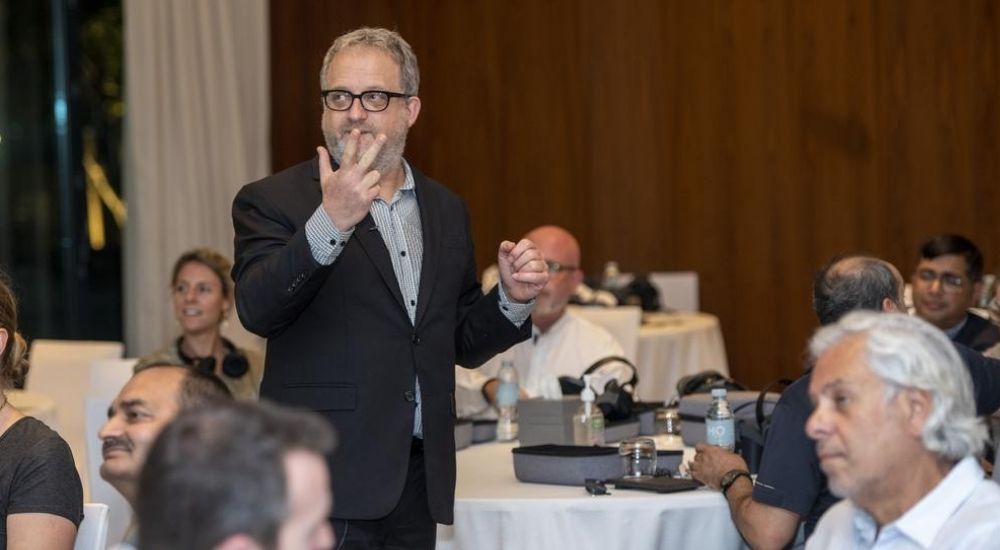Virtual reality to be applied to INSEAD’S Global Executive MBA programme

INSEAD, the Business School for the World with a campus in Abu Dhabi, announced virtual reality will be applied to enhance the learning experience for those enrolled in the school’s Global Executive Master of Business Administration programme. An immersive learning masterclass of Mission to Mars was introduced at the briefing to showcase the technology and highlight how it redefines the management and executive learning at INSEAD.
In this experience, participants ventured out to the red planet using VR headsets. They moved between the immersive journey and the classroom where they analysed and discussed the different events. This interactive, hands-on session offered the participants a deep learning experience on effective decision making in complex and ambiguous situations.
INSEAD launched its VR Immersive Learning Initiative pre-pandemic in 2019 to boost engagement, retention of knowledge and personalisation of learning. Today, more than 4,500 MBA and executive education participants have experienced VR as part of INSEAD programmes around the world, both remotely and in classrooms at its campuses in France, Singapore, and Abu Dhabi.
“After worldwide lockdown forced us to pivot from physical to all-online training, we immediately saw the potential for virtual reality to compensate for the weaknesses of purely distance learning, such as Zoom fatigue,” said Ithai Stern, INSEAD Professor of Strategy and Academic Director of VR Immersive Learning Initiative.
In a recent Price Waterhouse Coopers study, learners who underwent inclusive leadership training via virtual reality, took less time to train and were more confident about applying what they had learned
VR revolutionises the traditional case study method that business schools have been using for over a century. Some of the benefits are: participants have a highly individualised experience, responsive to real-time head movements, offering executives the chance to think through a situation in a safe and controlled environment, making decisions without feeling judged by other participants, or sensing pressures by any management that may also be participating.
In a recent Price Waterhouse Coopers study, learners who underwent inclusive leadership training via virtual reality felt more connected to the material, were more focused while learning, took less time to train and were more confident about applying what they had learned, than peers who took the same course in the classroom or online.
“Through an immersive 3D simulation involving scripts and actors, participants can be plunged into a lifelike conference room setting with a debate in full swing, or a tense close-quarters negotiation with fraught power dynamics on display,” Professor Ithai Stern said. “Just as they would in life, they must use their wits and powers of perception to come to grips with the situation and determine next steps.”
Virtual reality experiences teach participants a lot about themselves in a very short time frame and are to be preceded and followed by in-depth collective discussion in order to maximise the individual insights as well as detouring from what is the more standard classroom format.
“We don’t envision that virtual reality will replace existing executive educational tools and approaches, rather it will add a new dimension to the classroom – both virtually and physically – without taking anything away,” Professor Ithai Stern said.






